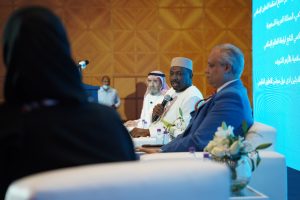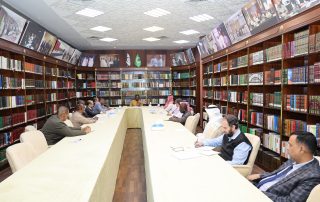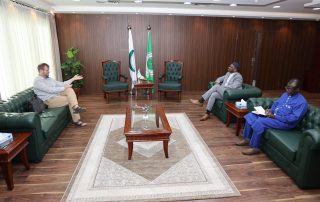
UNHCR, the UN Refugee Agency, held a joint event On Wednesday 27 Shaaban 1443H corresponding to 30 March 2022G in Jeddah, Kingdom of Saudi Arabia, in collaboration with the Organization of Islamic Cooperation (OIC)’s International Islamic Fiqh Academy (IIFA).
As part of the event titled “Islamic Philanthropy and its impact: sustainable partnerships and practical solutions”, UNHCR launched its “Islamic Philanthropy Annual Report”, which illustrates the impact Zakat and Sadaqah donations made to UNHCR’s Refugee Zakat Fund, had on refugees and internally displaced people, in the past year.
In 2021, the Refugee Zakat Fund enabled UNHCR to provide life-saving assistance in the form of cash assistance and in-kind assistance to 1,275,000 refugees and internally displaced people in 14 countries: Yemen, Syria, Jordan, Lebanon, Iraq, Egypt, Mauritania, Bangladesh, Afghanistan, India, Malaysia, Indonesia, and Nigeria.
The report states that all Zakat contributions received by the Refugee Zakat Fund, were distributed following its 100% Zakat distribution policy, to 53% of the Fund’s total beneficiaries (679,000 individuals), while Sadaqah donations helped the remaining 47% of beneficiaries (596,000 individuals).
The report also highlighted the launch of the Refugee Zakat Fund’s mobile application earlier in 2021, which allows donors to make contributions easily and quickly. Moreover, UNHCR’s Refugee Zakat fund received additional fatwas from respected Islamic institutions, such as the Muslim World league’s Islamic Fiqh Council, Al Azhar Islamic Research Academy, the International Sharia Research Academy in Malaysia (ISRA), and the Canadian Council of Imams (CCI), further authorizing the Refugee Zakat Fund’s framework. Additionally, the Fiqh Majlis of Canada endorsed the receipt and distribution of Zakat towards UNHCR’s ‘Aiming Higher’ scholarship and education program.
The event in Jeddah included discussion panels on the role of Islamic social finance instruments, including Zakat, Sadaqah Jariyah, and Waqf, to meet the humanitarian needs of the most vulnerable, and those affected by conflicts and disasters, especially refugees and internally displaced people, and was attended by representatives of organizations in the Islamic Philanthropy sector in the region.
Khaled Khalifa, UNHCR’s Senior Advisor on Islamic Philanthropy and Representative to Gulf Cooperation Council Countries thanked UNHCR partners, in particular IIFA, for their support, saying: “Our partnership with institutions, individuals, the private sector and governments has grown consistently, enabling us to provide assistance and respond to the increasing humanitarian needs of refugees and displaced families, those affected by protracted displacement crises, climate change, and COVID-19 pandemic challenges.” He added, “partnering with leading institutions in the Islamic Philanthropy sphere strengthens the impact of Islamic social finance on the lives of millions of the most vulnerable and forcibly displaced families, which is vital to the success of our vision in assisting those in need”
For his part, His Excellency Prof. Koutoub Moustapha Sano, Secretary General of the International Islamic Fiqh Academy, said: “The refugee issue constitutes an important aspect of the primary concerns of the Academy, and its pivotal role in highlighting their legitimate needs, their right to human dignity, and a decent life for them. In addition the Academy has a jurisprudential and scientific responsibility in clarifying the Shariah ruling related to intensifying the call to meet their needs and provide care for them. Accordingly we have granted the Commission a Shariah fatwa in order to support the Zakat Fund for Refugees and its governance mechanism.” He added: “We are pleased to host today, in partnership with the UNHCR, this special event, through which we seek to discuss ways to develop the role of Islamic charitable work in meeting the humanitarian needs of refugees and internally displaced persons in the region and the world, as one of the neediest groups in our societies. The Academy, through its sustainable partnership with the Commission, is committed to achieving the jurisprudential goals aimed at helping the needy wherever they are, advancing the human being and preserving his dignity. Through this platform, as we approach the holy month of Ramadan, we invite all charitable actors to cooperate with UNHCR and not to forget the refugees and their needs.”
UNHCR is launching its Islamic Philanthropy Annual Report 2022, through a series of events and webinars held in Indonesia, Saudi Arabia, Nigeria, United Kingdom, Canada and the United States of America respectively, in collaboration with Zakat and Fiqh institutions, foundations and other private and public sector entities.
Read Also
Lastest








